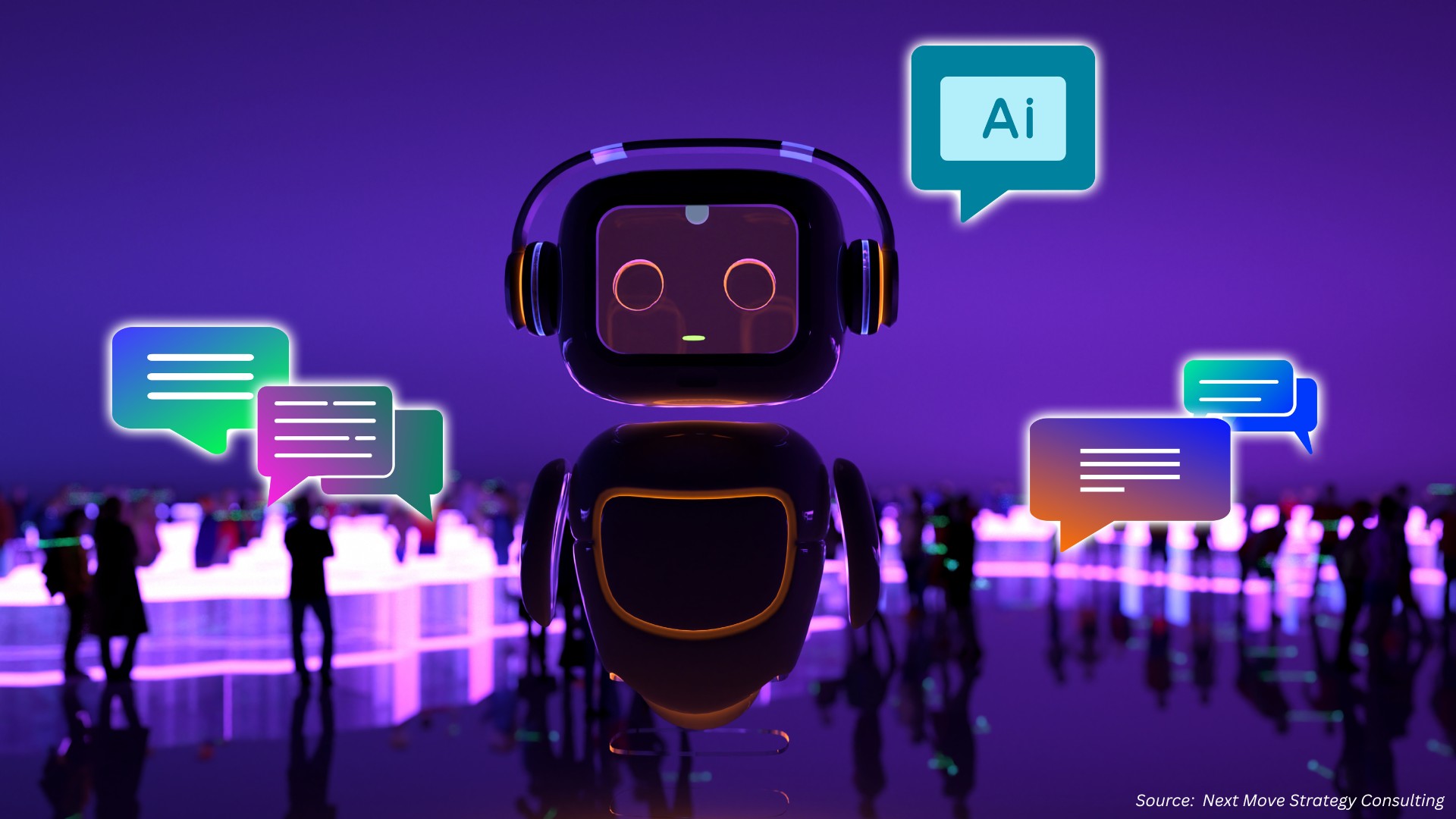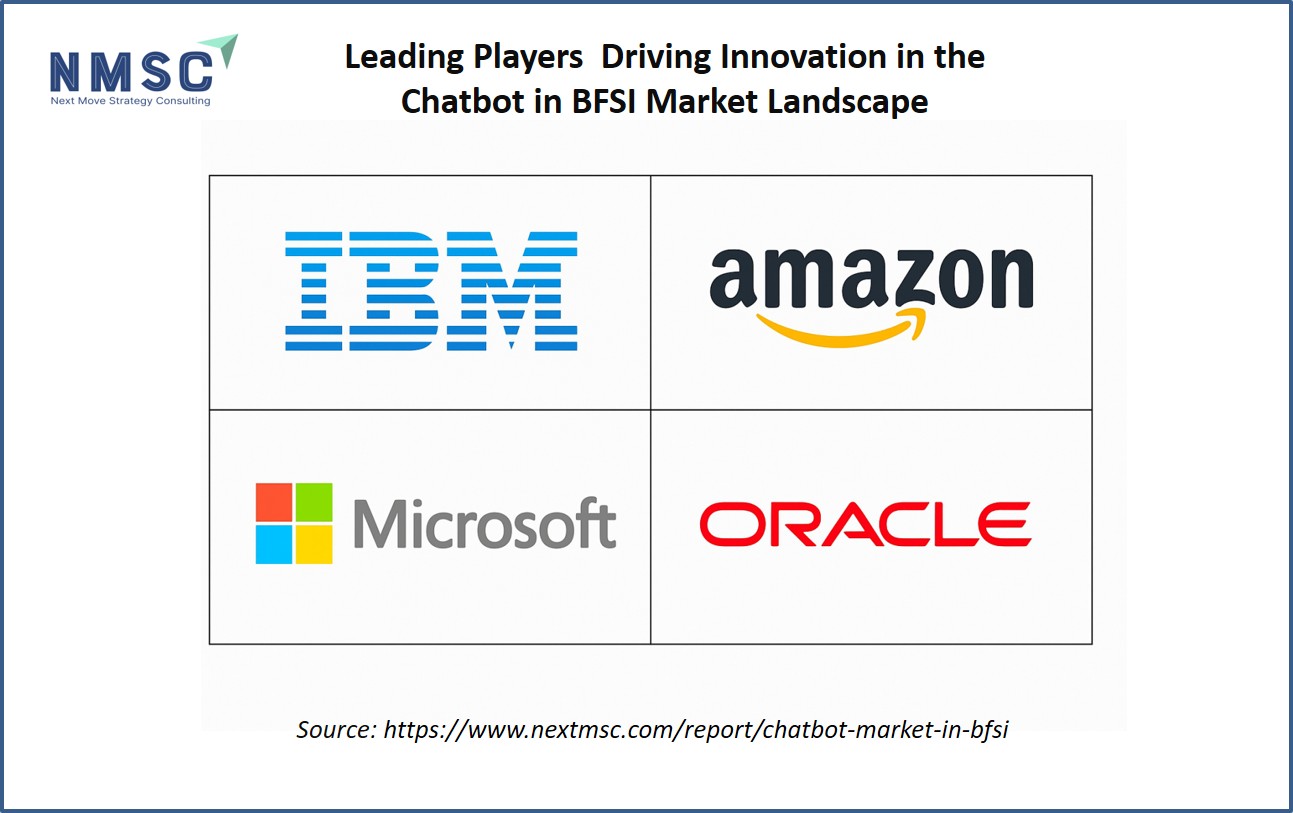How Are Chatbots Transforming the BFSI Sector?
Published: 2025-09-17

The banking, financial services, and insurance (BFSI) sector is undergoing a seismic shift, with Artificial Intelligence (AI) Market at the forefront. Among AI innovations, chatbots have emerged as a game-changer, streamlining operations and enhancing customer experiences. In 2025, institutions like Bank of America are setting the pace, investing heavily in AI-driven chatbots to redefine how they serve clients and empower employees.
What Makes Chatbots Essential in BFSI?
Chatbots, powered by AI and machine learning, are Virtual Assistant Market designed to handle customer inquiries, process transactions, and support internal operations. In BFSI, they address the sector’s need for speed, accuracy, and personalized service. Bank of America’s $4 billion investment in AI and new tech initiatives in 2025—nearly a third of its total technology budget—underscores the strategic importance of these tools.
The global Chatbot in BFSI Market size is predicted to reach USD 6170 million by 2030, with a CAGR of 27.4%.
Key Benefits of Chatbots in BFSI
-
24/7 Availability: Chatbots provide round-the-clock support, handling inquiries outside business hours.
-
Cost Efficiency: Automating repetitive tasks reduces operational costs.
-
Scalability: Chatbots manage high volumes of interactions without compromising quality.
-
Personalization: AI-driven insights enable tailored customer experiences.
Chatbots are indispensable in BFSI, offering cost-effective, scalable, and personalized solutions that meet modern customer expectations.
How Are Chatbots Enhancing Customer Service?
Customer service is the heartbeat of BFSI, and chatbots are revolutionizing this space. Bank of America’s AI-powered virtual assistant, Erica, introduced in 2018, has handled over 2.5 billion interactions and serves 20 million active users. By leveraging natural language processing, Erica delivers personalized financial guidance, from checking balances to offering budgeting tips.
Measurable Impacts
-
Reduced Call Handling Times: Customer service representatives using AI tools provide faster, more personalized interactions.
-
Scalable Feedback Processing: Generative AI systems summarize client conversations, eliminating manual transcription.
Chatbots like Erica enhance customer service by delivering quick, personalized responses and streamlining feedback analysis, improving client satisfaction.
How Do Chatbots Boost Employee Productivity?
Beyond customer-facing roles, chatbots are transforming internal operations. Bank of America’s internal AI chatbot, Erica for Employees, launched in 2020, is used by over 90% of its 213,000 employees, reducing IT support calls by more than 50%. This tool assists with tasks like password resets, device activations, and accessing information on benefits and payroll.
Productivity Gains
-
Developer Efficiency: Developers using generative AI-based coding assistants saw a 20% efficiency boost.
-
Time Savings: Employees save tens of thousands of hours annually by using AI to prepare client meeting materials.
-
Expanded Capabilities: In 2025, Erica for Employees will incorporate generative AI to provide easier access to product and service information.
Internal chatbots significantly enhance employee productivity by automating routine tasks and enabling focus on high-value activities.
Who Are the Key Players Driving Innovation in the BFSI Chatbot Market?
The BFSI chatbot industry is both highly competitive and fragmented, with numerous players striving to stand out. Leading companies like IBM Watsonx Assistant, Tars Technologies Inc., JiHaptik Technologies Limited, Kore.ai Inc., Amazon Lex (AWS), [24]7.ai, Inc., Acuvate, Aivo, Artificial Solutions (Teneo), Creative Virtual, eGain Corporation, Inbenta Holdings Inc., Gupshup, Kaleyra, Global Wavenet Pte Ltd., Amelia US LLC, Kasisto, Inc., LivePerson, Oracle, Microsoft, and several others are making significant strides. These market leaders are adopting a range of strategies—including launching new products—to strengthen their position and stay ahead in the dynamic global market.
How Are Chatbots Supporting Professional Development?
Training is critical in BFSI to ensure employees deliver exceptional service. Bank of America’s professional development arm, The Academy, leverages AI for employee training, with staff completing over 1 million simulated client interactions in 2024, receiving real-time feedback.
Training Tools
-
askMerrill and askPrivate Banking: These platforms, used by Merrill and private banking teams, recorded over 23 million interactions in 2024, up 1 million from the previous year.
-
Real-Time Feedback: AI-driven simulations help employees refine client interaction skills.
AI-powered chatbots enhance professional development by providing scalable, real-time training solutions that improve service quality.
Why Is AI Investment Growing in BFSI?
The BFSI sector’s embrace of AI reflects its potential to drive operational excellence. Bank of America’s $4 billion tech investment in 2025, with a significant focus on AI, aligns with its strategy to embed these technologies across operations. The bank holds over 1,200 AI and machine learning patents, highlighting its commitment to innovation.
How Is AI Creating Strategic Advantages in the Financial Sector?
The table below highlights key strategic advantages that AI brings to the sector:
|
Strategic Advantage |
Description |
|
Operational Efficiency |
AI reduces manual workloads, allowing employees to focus on strategic tasks. |
|
Client Engagement |
Personalized AI interactions strengthen customer relationships. |
|
Competitive Edge |
Early adopters like Bank of America set benchmarks for the industry. |
Growing AI investments in BFSI reflect the technology’s ability to enhance efficiency, engagement, and competitiveness.
What Challenges Do Chatbots Face in BFSI?
While chatbots offer immense benefits, challenges remain. Ensuring data privacy, maintaining accuracy, and integrating with legacy systems are critical hurdles. Bank of America’s success with Erica suggests robust infrastructure and continuous updates are key to overcoming these obstacles.
Key Challenges
-
Data Security: Protecting sensitive financial information is paramount.
-
Accuracy: Chatbots must deliver reliable responses to maintain trust.
-
Integration: Seamless connectivity with existing systems is essential for scalability.
Chatbots face challenges in data security and system integration, but strategic investments can mitigate these issues.
Next Steps for BFSI Leaders
To leverage chatbots effectively, BFSI leaders should consider the following actionable steps:
-
Invest in Scalable AI Platforms: Allocate budgets for AI tools like chatbots to enhance customer and employee experiences.
-
Prioritize Data Security: Implement robust encryption and compliance measures to protect sensitive data.
-
Enhance Training Programs: Use AI-driven simulations to upskill employees and improve service quality.
-
Monitor Performance Metrics: Track chatbot efficiency and customer satisfaction to ensure continuous improvement.
-
Collaborate with Innovators: Partner with AI technology providers to stay ahead of industry trends.
Conclusion
Chatbots are reshaping the BFSI sector by driving efficiency, enhancing customer service, and empowering employees. Bank of America’s $4 billion investment in AI for 2025 sets a powerful example, demonstrating how strategic adoption of chatbots can transform operations and client engagement. By addressing challenges and implementing actionable strategies, BFSI institutions can unlock the full potential of AI-driven chatbots.
About the Author
 Nitrishna Sonowal is a skilled SEO Executive and Content Writer with over 3 years of experience in the digital marketing industry. With a deep understanding of the ever-evolving digital landscape, she blends analytical insights with creative storytelling to deliver impactful digital solutions. She creates content that resonates with both clients and readers alike. Outside of work, she enjoys dancing, baking, and traveling to new places.
Nitrishna Sonowal is a skilled SEO Executive and Content Writer with over 3 years of experience in the digital marketing industry. With a deep understanding of the ever-evolving digital landscape, she blends analytical insights with creative storytelling to deliver impactful digital solutions. She creates content that resonates with both clients and readers alike. Outside of work, she enjoys dancing, baking, and traveling to new places.
About the Reviewer
 Sanyukta Deb is a skilled Content Writer and Digital Marketing Team Leader, specializing in online visibility strategies and data-driven campaigns. She excels at creating audience-focused content that boosts brand presence and engagement, while also pursuing creative projects and design interests.
Sanyukta Deb is a skilled Content Writer and Digital Marketing Team Leader, specializing in online visibility strategies and data-driven campaigns. She excels at creating audience-focused content that boosts brand presence and engagement, while also pursuing creative projects and design interests.













Add Comment